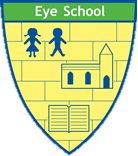Being School Ready
School Readiness
What is School Readiness?
The EYFS defines school readiness as ‘the broad range of skills, knowledge and attitudes children need as foundations for good future progress.’ (Statutory Framework for the Early Years Foundation Stage, page 4) and PACEY (Professional association for childcare and early years) say Nationally 97% of childcare professionals define it as, ‘ being curious about the World, having the desire to learn, can cope emotionally from being separated from their main carer and are relatively independent in their personal care’
UNICEF defines ‘school readiness’ as having three aspects that together bolster children’s likelihood of success:
- Children’s readiness for schools affects their learning and development
- Schools’ readiness for children ensures learning environments are child friendly and adapt to the diverse needs of young learners and their families.
- Families’ readiness for school promotes a positive and supportive approach to education, their children’s learning and the transition from home to school.
School Readiness at Eye Primary School
At Eye Primary School we believe that school readiness is about children becoming confident learners who don’t give up when things get tricky, it’s about being happy to leave familiar grown-ups and come into school willingly and be excited about what the day might entail.
We believe it’s about children being able to take care of their own needs at an appropriate level such as getting changed independently; washing their own hands and being able to go to the toilet by themselves.
Being school ready is also about children developing their language skills so that they can express their thoughts and feelings to others. It is about making friends and being able to share. It is about being able to ask questions to find out how and why things happen and being curious about the world around them.
We spend time outdoors building up strong core muscles that will help children be able to sit and develop shoulder strength for writing. We work hard on developing fine motor skills so that they can hold a pencil with control and are ready to write. We plan and set up lots of literacy and maths activities so they have the basic reading, writing and maths skills they need by the end of the EYFS. We teach phonics daily so that children are aware that words are made up of little sounds, are able to recognise, hear and say them, and use this knowledge to help them read and write.
We aim to give the children all the skills and knowledge they need to ensure that they continue to make good progress in the future.
